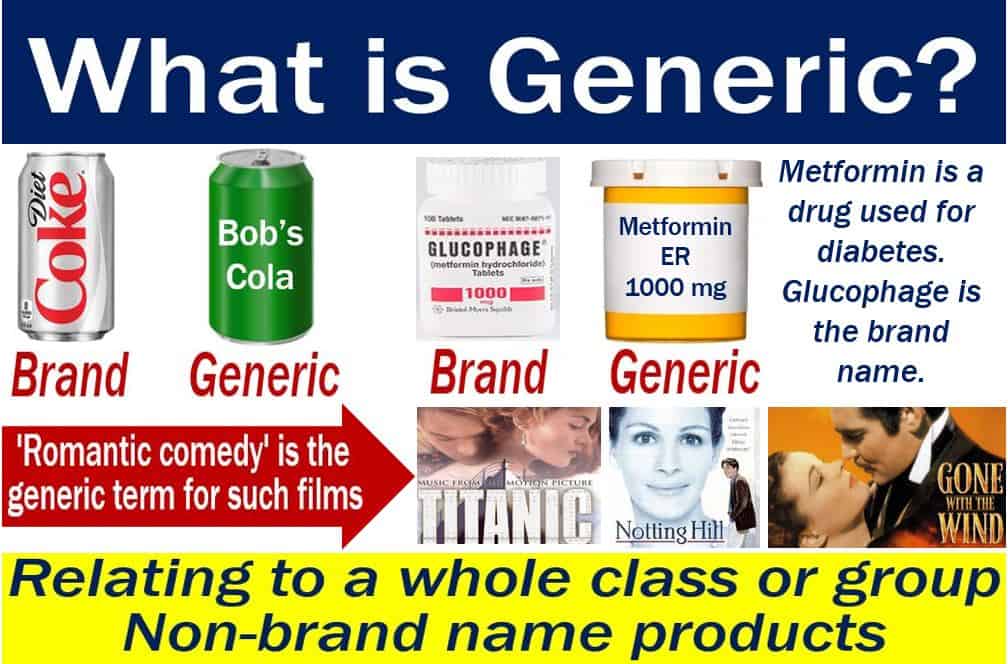Generic – definition and meaning
Generic, in business, refers to products that companies market without a trademark, brand name, or other distinguishing feature. In a non-business context, the term means characteristic of or relating to a whole class or group. For example “Science fiction is the generic term for such movies and TV series.”
This article focuses on the business meanings of the term.
The term, meaning ‘belonging to a large group of objects,’ first appeared in the English language in the 1670s. It originated from Latin gener-, stem of genus ‘race, kind.’ Hence, a general kind, i.e., not special.
Its business meaning did not emerge in the English language until 1953 for drugs, and 1977 for other products.
According to the Macmillan Dictionary, generic means:
“1. Relating to or suitable for a range or class of similar things. 2. A generic drug or other product does not have a trademark and is sold without a company’s name on it.”

Generic name
This is a successful product that we refer to by name when talking about an entire class or category of goods.
The product is usually the first of its kind to come onto the market. For example, Thermos (vacuum flask), Fridge (refrigerator), Hoover (vacuum cleaner), and PC (desktop computer) were once exclusive brand names.
Today, however, they refer to all brands of a specific category or group. A brand, in this article, refers to an exclusive product name, slogan, image, etc.
Nobody has the legal right to own a generic name. Not even companies that first introduced them can own the generic names.
Generic goods
These are products that we name only by their basic product type. In other words, we do not name them by their individual brand.
Many supermarket chains have their own generics. Generics, in this sense, means goods with the supermarket’s name on them. They sell them more cheaply than products with brand names.
For example, retailers have their own generic sodas, which say ‘Cola,’ rather than having a brand name like Pepsi or Coke. The ‘cola’ products are considerably cheaper than the brand names.
Generic drugs
These are pharmaceutical drugs that are equivalent to a brand-name medication in strength and dosage. They are also the same in quality, performance, intended use, and route of administration. Route of administration refers to how you administer the drug, e.g., orally, nasally, by injection, etc.
Generics possibly contrast with the brand name medications in taste, packaging, and color. However, they are identical in every other sense.
When a pharmaceutical company patents a new compound, it owns the exclusive rights over that compound. Nobody else can legally sell it without the patent owner’s permission.
If that compound eventually becomes a drug that the authorities approve, we call it a brand name drug.
During that compound’s patent life, the pharmaceutical company that markets that brand-name drug sells it exclusively.
However, as soon as the patent expires, other companies can compete selling generic versions.
Therefore, a generic drug is a drug that competes with a brand name drug after its patent expires.
Generic Appeal is a type of advertising that promotes a product’s category rather than the product itself.
Video – Generic vs. brand names
This Asap Science video talks about brand name products versus generics. People tend to perceive brand name products as superior to generics.
However, our trusted brands demand more of our money. Is there, therefore, really a difference between the two types of products?

